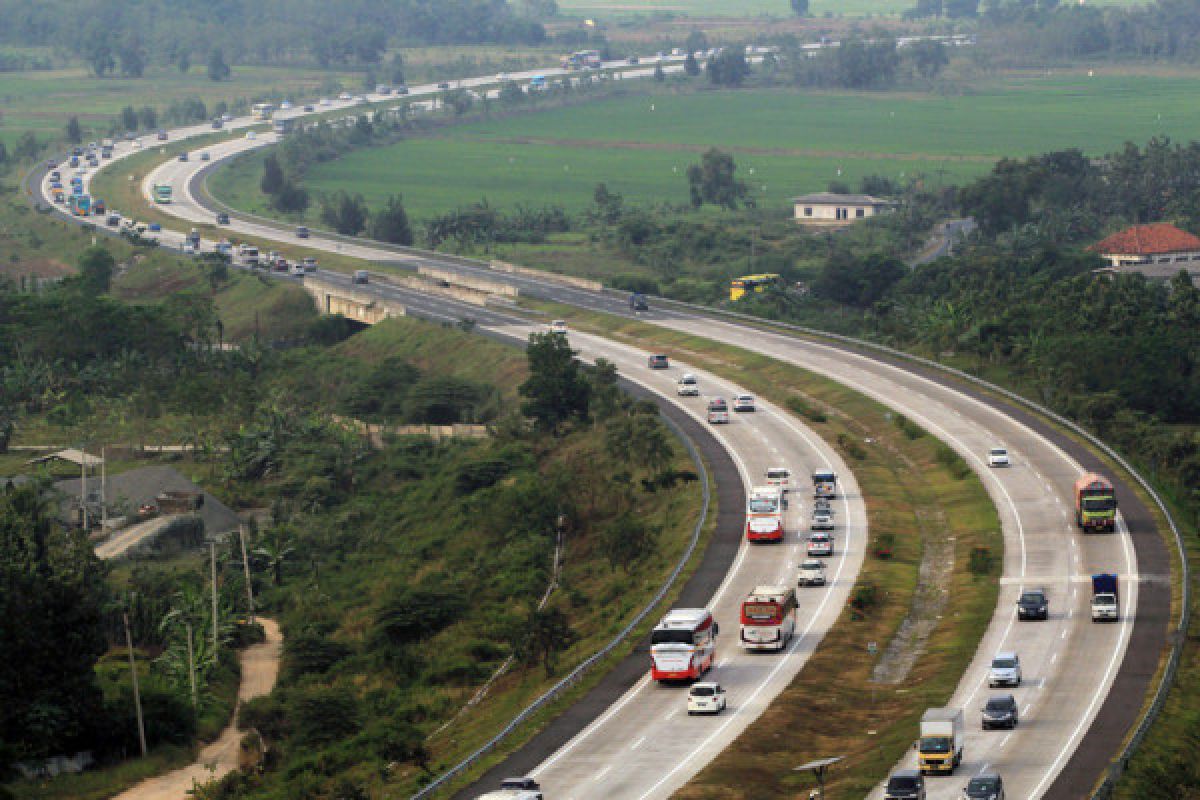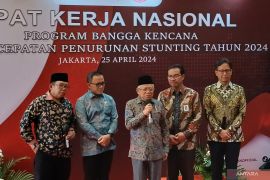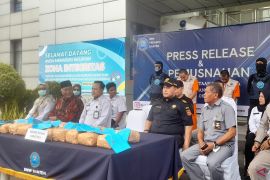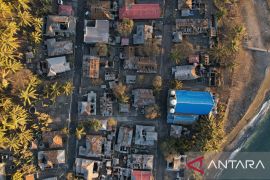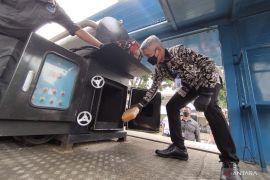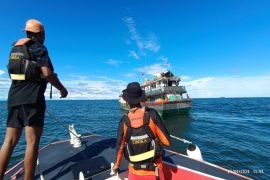Though the government has set the target to complete the construction of the 1,150-kilometer toll road by the end of 2019, yet the Merak-Surabaya section, stretching 870 kilometers, would have been completed by the end of this year.
According to the President Director of state-owned toll road construction firm Waskita Kraya, I Gusti Ngurah Putra, the Trans-Java toll road could have double effects on national economic activities.
"Toll roads will operate and generate economic growth throughout or around the toll roads," Putra stated at the Waskita Karya office in Jakarta on Thursday (Nov 15).
By using the Trans-Java toll road with sections having been connected from end to another, the route from Jakarta to Surabaya can now be covered in about 10 hours. Thus, goods sent from East Java to Jakarta or otherwise, for example, will also arrive at the destinations in fresh conditions.
In addition, the frequency of departure of logistics trucks, which was usually only once, could now be increased to twice, leading to increase in productivity.
The President Director of Waskita Karya gave an example. He explained how a consultant once had disclosed to him that the North-South toll road in Malaysia, after operating for more than 10 years, could stimulate revenues up to around 30 percent of the country`s gross domestic products (GDP).
Meanwhile, President Director of state-owned toll road management firm PT. Jasa Marga, Desi Arryani, remarked on Sunday (Nov 11) that the connectivity of the Trans-Java toll road, which will be realized in 2019, will have a positive impact on the public as it would lower logistics costs and boost economic development around the toll road.
She added that the government had targeted to complete the construction of the 1,150-kilometer Trans-Java Toll Road from Merak to Banyuwangi by the end of 2019. By the end of 2018, Jasa Marga is estimated to have operated 984 kilometers.
Based on its purpose, the development of toll road infrastructure must be integrated with economic growth centers, such as industrial areas, seaports, airports, tourist areas, and large-scale settlements. So, it will provide maximal benefit for business, tourism, and industry.
According to Putra, the government, in addition to the toll road, should also build electricity extension network, water, or even export-import seaports. It will generate a multiple effect if the toll road is supported by building various infrastructures.
Putra pointed out that the development of the Trans-Java Tolls shows great performance for Waskita because the total length of toll roads it was developing for four years is about 1,000 kilometers.
"The strategy is that the management of Waskita Karya is serving not only as a toll road operator but also as a developer," he noted.
As it has been said, the construction of the Trans-Java Toll Road is one of the successes of the Presidential Working Cabinet of Joko Widodo in meeting its promise to enhance interconnectivity.
According to the Minister of Public Works and Public Housing, Basuki Hadimuljono, the development of the Trans-Java Toll Road is one of the successes of Widodo`s Working Cabinet to fulfill its promise to improve inter-regional connectivity.
Basuki Hadimuljono, in a written statement in Jakarta on Wednesday (Nov 14), stated that based on the target, all Trans-Java toll road sections from Merak to Surabaya, along 870 kilometers, will be operational by the end of 2018, and currently 640 kilometers have been operational.
The rest of the 230-kilometer sections are divided into five sections, which will operate gradually until the end of2018.
The five toll road sections are those of the Sragen-Ngawi Toll Road (51 kilometers), which is expected to be operational in the second week of November 2018; the Pemalang-Batang (33 kilometers); Batang-Semarang (75 kilometers); Salatiga-Solo (32 kilometers); and Kertosono (39 kilometers) sections, which are all expected to be operational by the second week of December 2018.
When all sections to Surabaya are completed, vehicles travelling from Jakarta to the East Java provincial capital would cover a distance of 760 kilometers in 10 hours, especially if the traffic gridlock in the Jakarta-Cikampek section could be overcome.
"Therefore, state-owned toll road operator PT Jasa Marga is still working hard to overcome the causes of congestion in the Jakarta-Cikampek Section of the Trans-Java Toll Road," said Desy Arryani, Jasa Marga`s president director, in Jakarta on Sunday (Nov 12).
She promised that in the next six months, or before Lebaran 2019, the congestion in the Jakarta-Cikampek section would be significantly reduced, and so it could optimize Trans-Java connectivity.
"The travel time is very short; ideally, it will take not more than 10 hours. We hope that by Eid 2019, it (Jakarta-Cikampek) will be smooth. It can be 10 hours travel time if Jakarta-Cikampek is already smooth," she explained.
As of October 2018, both from the Trans-Java network and outside Trans-Java, Jasa Marga operates 787.5 kilometers of toll roads. By the end of 2018, the company targets to operate 984 kilometers of toll roads.
Editing by Suharto
Reporter: Andi Abdussalam
Editor: Heru Purwanto
Copyright © ANTARA 2018
